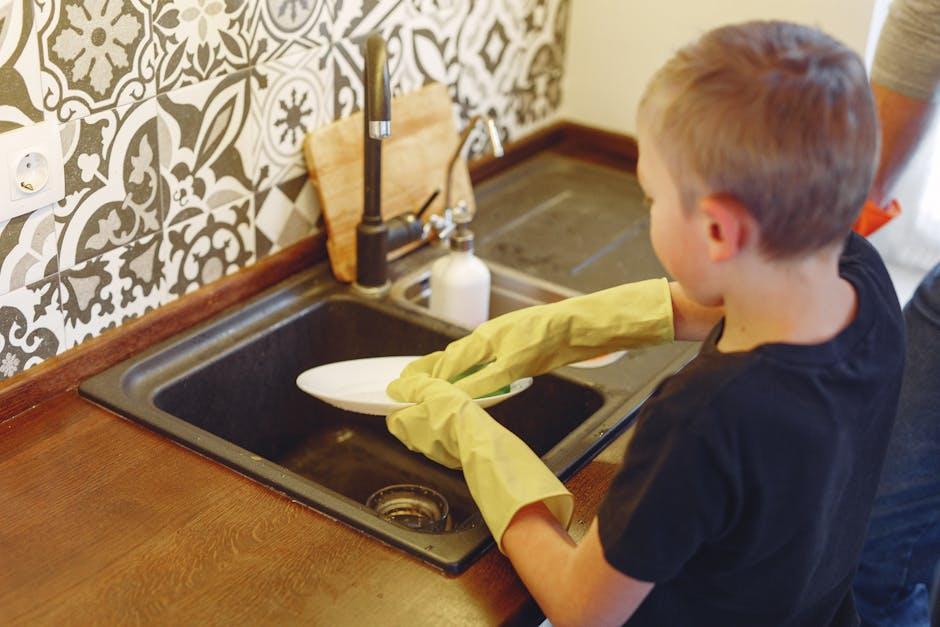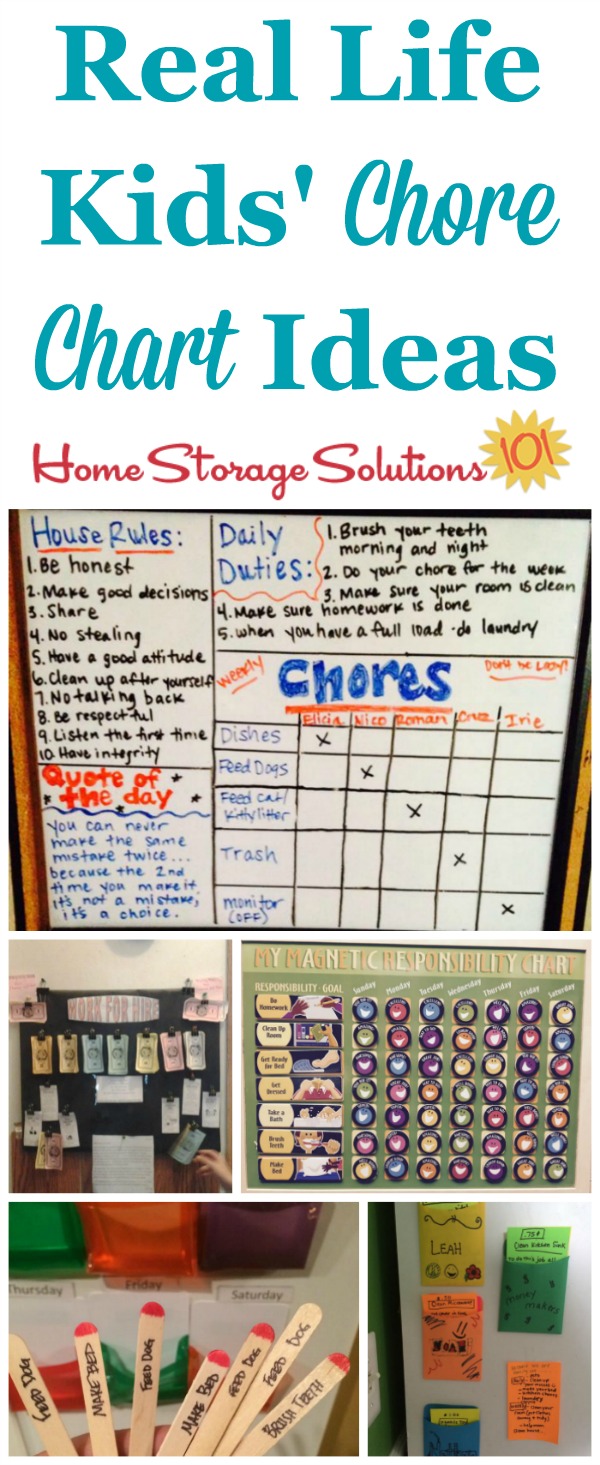Developing Accountability through Homeschool Chores

Tired of feeling like the maid in your own home? Always nagging your kids to pick up after themselves? It’s time to turn those little mess-makers into responsible, chore-doing machines! With a little creativity and a whole lot of patience, you can develop accountability in your homeschool through the wonders of household chores. No, really, it’s possible – we promise! So grab a mop, put on your favorite apron, and get ready to whip those little rascals into shape (in the most loving way, of course). It’s chore time, baby! Let’s do this.
The Importance of Accountability in Homeschooling
When it comes to homeschooling, accountability is key. Without it, chaos ensues, and the educational ship may sink faster than you can say “fractions.”
One way to ensure accountability in homeschooling is to establish a daily schedule. This helps set expectations for both the teacher (that’s you, parents!) and the students. Whether you’re starting the day with math or ending it with a science experiment, keeping a consistent routine will help everyone stay on track.
Another important aspect of accountability in homeschooling is setting clear goals. Whether it’s mastering multiplication tables or conquering Shakespeare, having tangible objectives for your child to work towards will help keep them motivated and focused.
And let’s not forget about the power of assessment. Regularly checking in on your child’s progress can help identify areas for improvement and celebrate successes. Plus, who doesn’t love a good old-fashioned pop quiz every now and then?
Assigning Age-Appropriate Chores
When it comes to to your little minions, err, I mean children, it’s important to consider their skill level and attention span. Let’s face it, no one wants to be stuck cleaning up after a tornado disguised as a toddler. Here are some tips to make sure your kiddos are pulling their weight around the house:
- Toddlers: These little bundles of energy may not be able to handle heavy-duty chores, but they can certainly help with simple tasks like picking up toys, feeding pets, or throwing clothes in the hamper. Just be prepared for a game of hide-and-seek when it comes time to actually do the chore.
- Preschoolers: Preschoolers are at the perfect age to start learning more complex chores like putting away groceries, setting the table, or watering plants. Just remember to watch out for any “accidental” spills or messes along the way.
- Elementary School Kids: These mini-humans are ready to take on bigger responsibilities like vacuuming, dusting, or cleaning up their own rooms. Don’t be surprised if they suddenly become experts in finding creative ways to avoid doing their chores though.
- Tweens and Teens: Ah, the elusive creatures known as tweens and teens. At this point, they should be able to handle just about any chore you throw their way, from cooking dinner to mowing the lawn. Just be prepared for some eye-rolling and heavy sighs along the way. It’s all part of the charm, right?

Creating a Chore Chart
So, you want to create a chore chart, huh? Well, buckle up, because we’re about to turn your household into a well-oiled cleaning machine!
First things first, you’re going to need to assign tasks to each member of your household. Make sure the chores are age-appropriate – you don’t want little Timmy trying to fix the leaky sink, trust me on that one.
Next, get yourself a fancy schmancy whiteboard or some colorful poster board to display the chore chart. You want this bad boy to be front and center, so everyone knows what they’re supposed to be doing. Plus, it adds a touch of flair to your decor. Who said chores can’t be stylish?
Now, here comes the fun part – the rewards system. Make sure to incentivize your little minions with some sort of reward for completing their chores. Whether it’s extra screen time, a trip to the ice cream parlor, or a pat on the back, everyone needs a little motivation to get that toilet scrubbed.

Setting Expectations and Consequences
Have you ever wondered why is like going to war with your own children? Well, fear not because we are here to guide you through this treacherous journey with some humor and wit!
Remember, children are like little dragons – they will test you at every turn with their fiery tantrums and mischievous ways. But fear not, brave parent, for you hold the ultimate weapon: .
Think of yourself as the commander-in-chief, laying down the law and setting the rules of engagement. Here are some battle strategies to help you navigate this battlefield:
- Be clear and concise: State your expectations in simple terms that even a toddler can understand. No need for fancy language here – just lay down the law like the boss you are!
- Follow through: Don’t be afraid to dish out consequences when expectations are not met. Whether it’s a time-out or taking away their favorite toy, show them who’s boss!

Monitoring Progress and Completion
Now that you’ve embarked on this epic journey of completing your tasks, it’s time to make sure you’re on the right track. is like being your own personal detective, but without the cool trench coat and fedora. Let’s break down some ways to keep tabs on your quest:
Stay organized by creating a **task checklist**. Imagine it as your trusty sidekick, reminding you of what needs to be done. Check off each task as you complete it, like crossing items off your grocery list (except hopefully you don’t forget the milk this time).
Use **status updates** to track your progress. Whether it’s color-coded spreadsheets or post-it notes all over your office, visually seeing how far you’ve come can be a real motivator. Plus, who doesn’t love a good excuse to buy more office supplies?
Don’t forget to **celebrate your victories** along the way. Completing tasks deserves a virtual high-five or a victory dance in your living room. Treat yourself to a fancy coffee or a well-deserved break after a job well done. You’re one step closer to conquering those tasks like the productivity guru you are!
Teaching Responsibility and Time Management
can be a challenging task, but with the right approach, you can turn even the most disorganized student into a punctual, reliable superstar!
First and foremost, set clear expectations and consequences for missed deadlines. Make sure your students understand that procrastination will not be tolerated – after all, time is of the essence! Encourage them to break down big tasks into smaller, more manageable chunks so they don’t feel overwhelmed. As they say, Rome wasn’t built in a day!
Another trick is to help your students prioritize their tasks by creating a to-do list. This way, they can see what needs to be done and when, and can check off each item as they complete it. Remember, a checked-off list is a happy list!
Lastly, don’t forget to lead by example. Show your students that you value your time and responsibilities by being organized and punctual yourself. After all, it’s hard to preach about time management if you’re always running late!
Encouraging Teamwork and Collaboration
In order to foster a culture of teamwork and collaboration within our team, let’s spice things up a bit! Here are some fun and quirky ideas to get everyone working together harmoniously:
- Team-building Olympics: Organize a series of silly competitions like three-legged races, egg tosses, and tug-of-war. It’s a great way to break the ice and bond over some friendly competition.
- Collaborative art project: Set up a communal canvas or mural in the office and encourage everyone to contribute their creative touch. Who knows, you might uncover some hidden Picasso’s among your team!
- Random pair-ups: Assign random team members to work together on a project or task. Sometimes, the most unlikely duos can come up with the most innovative ideas.
Remember, teamwork makes the dream work! So let’s roll up our sleeves, put on our thinking caps, and show the world what we’re made of. Together, we can conquer any challenge that comes our way!
FAQs
How can I motivate my child to do their homeschool chores?
First off, ditch the boring nagging and try a reward system instead. Create a chore chart where they earn points or stickers for completing tasks, and exchange those points for fun rewards like extra screen time or a special treat. And hey, bribery works too! Offer up a fun outing or activity as a prize for a job well done.
What are some age-appropriate homeschool chores for kids?
Think about tasks that are manageable for each age group. For younger kids, simple chores like setting the table or feeding the pets are great. Older kids can handle more responsibility, like helping with laundry or doing the dishes. And hey, don’t be afraid to start them young – even toddlers can help pick up toys or put away books.
How can I make homeschool chores more fun?
Turn on some music and have a dance party while you clean! Or make it a game by setting a timer and seeing who can finish their chores the fastest. You could even create themed cleaning days, like “Superhero Sweep-up Saturday” where everyone wears capes and cleans with their superpowers.
What if my child refuses to do their homeschool chores?
Time to bust out the big guns – consequences! Take away privileges like electronics or playtime until the chores are completed. And if all else fails, get creative with the consequences - like making them write a funny poem about why chores are important or do a silly dance. Hey, sometimes you’ve gotta be tough to get the job done.
How can I teach my child the value of accountability through homeschool chores?
Get them involved in setting up a chore schedule and discussing why each task is important. Talk to them about how their contributions make a difference in the family and how accountability means taking responsibility for their actions. And hey, lead by example – show them that you’re accountable for your own tasks and responsibilities too.
Keep Calm and Chore On!
Now that you know the secret to developing accountability through homeschool chores, it’s time to put it into action. Remember, chores are not just about getting tasks done - they are about teaching responsibility, teamwork, and life skills. So, embrace the mess, laugh at the chaos, and celebrate the tiny victories along the way. Happy cleaning!






